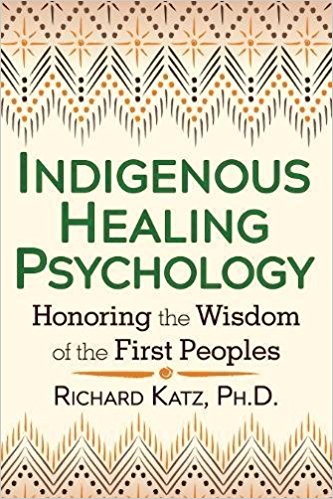
By
Richard Katz, Ph.D.
Reviewed by Henry Reed
This book is quite unique. It is not like the bulk of the contemporary books on ethnic shamanism, how to be a neo-shaman, etc. Although the author has spent years in apprenticing to indigenous shamans, this book is not about how he practices those skills. Instead, what he is trying to do, and I am so pleased and proud of his efforts, is to help Western psychology learn the lessons and wisdom of those practices, and incorporate such into our own psychology. The closest cousin to this approach might be the series of books written by Lewis Mehl-Madrona, a "half-blood," integrating the two cultures. I've taken the approach to call myself, tongue in cheeck, an "authentic indigenous Appalachian American Gringo shaman" to call attention to how we have, in the west, the same capabilities, and don't need to "imitate the Indians," with regard to their ethnic artifacts, but we can well learn from them. I've never run across information like this book and I'm holding it in high esteem.
The author is a full fledged American academic, having been a psych professor at Harvard, besides traveling the world studying from the indigenous experts. He is not trying to share techniques with us so much as to enlarge our vision of psychology, break down some barriers or boundaries, shift the weight away from the objective measurement of materially visible variables, empower the "patient" within a larger community, and embrace dimensions of experience that traditional psychotherapists ignore, avoid, or devalue.
The title to an early chapter says a lot: "If we can't measure it, is it real?" Its sad that educated folks still have to ponder this question. But I recall my Ph.D. training, and my first "experiment." The professor dismissed it because no measurements were involved. What I saw happening between people was real enough, but how to convert it to numbers? That's a hard nut to crack.
One thing that is common between this book and other books out there is its emphasis on how our mainstream psychology is culturally conditioned, and thus blind to other alternatives. I don't know if it is the freedom of the "post modern" temper of the times that makes this particular theme in the book resonate, ring a bell beyond its covers, but we (us Gringos) to come away appearing quite near-sighted, with maybe one eye blind. Vocabulary like "let's privelege the voices of the indigenous," sounds like post-modern talk. Anyway, makes sense to me!
Although the author is on a mission, and is clearly a critic of our narrow-mindedness, he comes across as a very kind person, and doesn't shout criticism, but shows a great deal of empathy for us Gringos, and you get the sense that his being with so many indigenous folks that the soft respect, soft spoken empathy just comes through. I suspect that the tone of the book will help get his ideas across to some who might otherwise be on the defensive.
The book is not a text book, not a diatribe, but a gentle story of his experiences learning from a wide variety of indigenous healers, all the while feeling wistful (as if it would be so nice if his colleagues could just appreciate what he is noticing).
I dare not try to summarize the main points, for fear that I would not express them nearly as wonderfully as he does. I will restrict myself to simply listing the chapter titles.
Things of Power: Releasing the Healing Potentials of Psychology
If we can't measure it, is it real? Entering the Profession of Psychology
We try to Understand our World--That's just What We do: Indigenous Elders as Our First Psychologists
We respect What Remains a Mystery in Our Lives: The Enduring Foundation of Spirituality in our Everyday Lives
The Purpose of Life is to Learn: Research as a Respectful Way of Experiencing and Knowing
All in the Circle of Our Lives Remains Valuable: Nourishing a Recurring Fullness Throughout the Life Cycle
Health is More than Not Being Sick: Balance and Exchange as Foundations of Well-Being
All My Relations: Honoring the Interconnections that Define Us.
There is No One Way, Only Right Ways: The Renewing Synergies of Multiple Psychologies
I would love to see this book used as a text in graduate schools teaching clinical psychology. What a difference it would make!